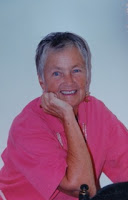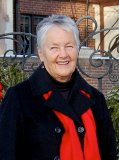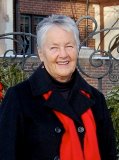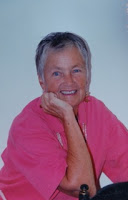Now, let me see. Little things mean a lot. What ever in the world does that mean? It seems to me that if something means a lot, then it follows, does it not, that it is not a little thing, but rather a big thing. I guess it depends on how you evaluate a thing–a happening, an incident. But, to my way of thinking and/or feeling, meaning is what gives a thing its value and importance in life, and if it means a lot, that is, has a lot of meaning it’s big. So far, I can’t make any sense out of this statement “Little Things Mean a Lot.”
So allow me to try to apply the statement to some of the happenings in my life and see then if it rings true.
I like to enjoy a cup of tea every morning soon after rising. Being partnered with and living with a Brit, I am told by said Brit that I cahhn’t make a proper cup of tea. Being American (a Colonial) I simply am innately unable to brew a proper cup of tea and therefore must have my morning tea made for me and served to me. (By the way, I never realized until I met this woman that we Americans had this particular defect.) Well, needless to say, I do not mind one bit being waited upon by the love of my life, so I go along with her on my inherent incapacity and let her do it.
“Your tea is ready, My Darling.” Now some might consider this daily ritual a “little” thing. I suppose it would be if it only happened once or even occasionally. But it becomes a large part of my life when you consider it happens 365 days a year and then for approximately well, say, 20 years of living together. That’s over 7,300 cups of tea! That’s not a little thing. That’s big, monumental, a significant part of my life. And then double it because the scenario is repeated in the late afternoon. That brings it to almost 15,000 cups of tea — no little thing indeed.
Well, I’m still trying to find a kernel of truth in the adage “little things mean a lot.” Maybe I could make the statement apply to an incident that happened only once and a long, long time ago. I can think of two or three incidents actually from my childhood. Insignificant really in terms of their outcomes affecting anyone’s life. But the very fact that I can remember them 60-70 years later makes them significant, I believe. So, the truth is the really little things are no longer in my memory and therefore mean nothing.
Who said “little things mean a lot, anyway,” I ask myself. Well, Kitty Kallen made the song a hit in 1956 or so. But reading the lyrics brings me back to my original conundrum: How can something that means a lot be regarded as little.
“Give me your heart forever and ever. Little things mean a lot.” Oh come on! Turning your heart over to someone for keeps. That doesn’t sound like a little thing to me. Even “Blow me a kiss from across the room” can be the most exciting, main event of the year if you’re attracted to the person. Not a little thing at all. Remember that feeling?
Maybe the author of these lyrics was thinking in terms of the entire universe when she wrote the words. Now I am getting somewhere. I think I can make this work. I get it now. WE humans living in this universe on this speck of dust called Earth are little things and we THINK we mean a lot. Some believe that Earth hosts the only life in the universe and that we humans are the only intelligent life. I don’t happen to believe that, but, surely, those who do believe that consider themselves to be more than little things. I’ve been searching my soul for the answer to that one for a long time and I expect the search will continue until my soul finds its final home.
Searching Google for the lyrics to the song I find myself glancing at an article written about the current presidential campaign. It’s the little things that will effect the final outcome of the 2012 election, says Prof. Steffen Schmit. Now that does mean a lot–I mean the final outcome of the election. It seems that the state of Ohio a swing state which historically always picks the president at election time–Ohio is trying desperately to figure out how to get Mr. Romney elected–that is the Republican legislature is trying to figure this out. It seems Republicans have worked out a system whereby counties which traditionally vote Republican have been given 3 extra early voting days–the weekend before the actual election. Counties that traditionally vote Democrat are not given those extra days to vote early. The Obama campaign feels that the 3 extra days should be given to everyone, not just those who favor his opponent. The little thing of 3 extra days is suddenly becoming a very large issue indeed when you consider that it could make the difference between winning or losing the state; and, as in the 2008 election, the difference between winning or losing the entire election.
I guess I will simply have to conclude that 1. things that mean a lot are not little, rather they are, in my view, BIG. And 2. There are plenty of little things in my life, but they are just that–little, of relative insignificance, and not full of meaning.
About the Author
Betsy has been active in the GLBT community including PFLAG, the Denver women’s chorus, OLOC (Old Lesbians Organizing for Change). She has been retired from the Human Services field for about 15 years. Since her retirement, her major activities include tennis, camping, traveling, teaching skiing as a volunteer instructor with National Sports Center for the Disabled, and learning. Betsy came out as a lesbian after 25 years of marriage. She has a close relationship with her three children and enjoys spending time with her four grandchildren. Betsy says her greatest and most meaningful enjoyment comes from sharing her life with her partner of 25 years, Gillian Edwards.









